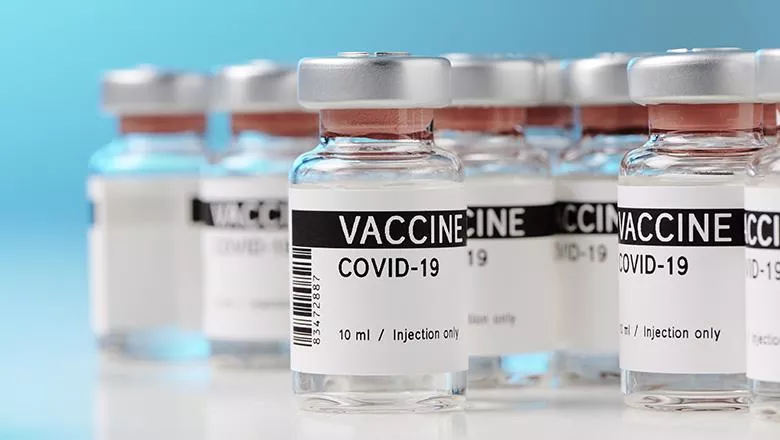Vaccination remains extremely important, to help protect yourself, your family, and your community from COVID-19. However, if you do have symptoms afterwards, you should not assume that it’s just side-effects of the vaccination - although fortunately this was the most likely outcome. You should check to make sure you don’t have early COVID-19, by getting tested. This is particularly important now, when the UK is experiencing high levels of SARS-CoV-2 infection circulating in the community and particularly while we are still learning about the new variant, Omicron.
Lead author, Professor Emma Duncan, from the School of Life Course & Population Sciences
07 December 2021
Early COVID-19 can be mistaken as vaccine side-effects, warn researchers
Early symptoms of COVID-19 can’t be clearly differentiated from vaccine side-effects, new findings show. Researchers recommend that if people show symptoms of COVID-19 after vaccination, they should stay at home and arrange to have a test.

The study, published recently in eClinical Medicine and led by King’s, analysed data from 362,770 UK users of the ZOE COVID Study App who had been vaccinated between 8 December 2020 and 17 May 2021 who subsequently reported at least one symptom associated with COVID-19 within the first week of vaccination. Of these, 14,842 people took a PCR or lateral flow test; and 150 people subsequently reported positive for COVID-19.
In order to identify the difference between early COVID-19 and post-vaccination side effects, the scientists used traditional machine learning models to review a comprehensive list of symptoms associated with COVID-19. They also analysed the data using just the three core symptoms of high temperature, new continuous cough, and loss/change to sense of smell.
The models were unable to tell the difference between symptoms in people with confirmed COVID-19 infection and symptoms due to vaccination alone in a clinically useful manner. Put plainly, there was no way to tell whether symptoms such as headache, fever, fatigue, or general aches and pains were due to vaccination or to early COVID-19 in the first week after the jab - unless a test was taken.
At the time the study was performed in Spring and Summer 2021, COVID-19 cases in the UK had declined to 2,000 cases a day, and as such the number of positive cases in the study itself was small. Currently, though, more than 40,000 new cases have been reported each day in the last week; and the likelihood of community transmission is much higher now than it was in the Spring of 2021. Researchers warn that the current levels of circulating virus mean it is especially important to check whether post-vaccination symptoms are in fact due to COVID-19, noting that immunity to the virus does not occur immediately after vaccination. This is particularly crucial for adults and older children who have recently had their first jab
She added: “It takes time to develop immunity after vaccination; and if you are infected it’s important to know this – both for your own sake, so that you can receive appropriate care, and for the sake of other people, so that you can ensure you don’t pass it along to vulnerable individuals. Being tested if you have symptoms – even if you’ve been vaccinated – will help stop the spread of COVID-19.”
Dr Liane Canas, from the School of Biomedical Engineering & Imaging Sciences, said: “To identify differences in symptom types between early signs of COVID-19 and post-vaccination symptoms, we used traditional machine learning models, which considered all 28 symptoms reported in the app, and a clinical model using the three core symptoms used for testing referencing by the NHS at the time of our study.
She added: “Both the machine learning models (using all symptoms) and the clinical model (three symptoms) found it difficult to differentiate between symptoms associated with a positive test result and vaccine side effects. This is why anyone with symptoms should have a test. Ultimately, this will help us avoid spreading the virus this Christmas.”

